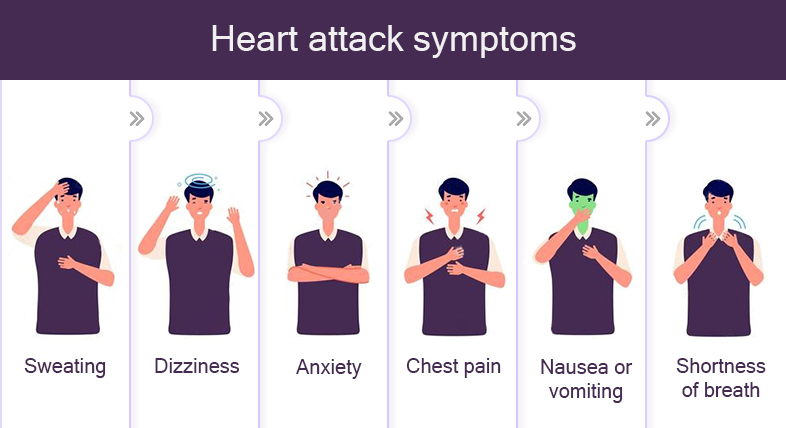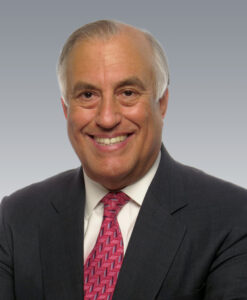Home / Heart Attack Treatment Manhattan NYC | New York Heart Attack Specialist
A heart attack is a medical emergency and if you believe you are experiencing this you should call 911.
Heart attack symptoms can include but not be limited to an acute onset of crushing chest discomfort, chest burning, sweating, nausea, and even dizziness.
Heart attacks and strokes are the leading causes of death in the United States. Every year, around 860,000 Americans die as a result of heart disease or another untreated cardiovascular condition. High blood pressure, poor nutrition, high cholesterol, smoking, little or
best cardiovascular specialist in NYC no physical activity, obesity, and type 2 diabetes are the most preventable precursors to a heart attack.
The onset of a heart attack can be sudden and severe, but most begin as a gradually increasing pain in your chest. In the United States, a heart attack occurs about once every 40 seconds. Strenuous activities like sports, heavy labor, and other physical activities are often credited as an inciting cause of a heart attack. But the real causes are typically longstanding health issues that are varied and complex.
Read more: Gas Pain in Your Chest: Is It a Heart Attack?
When you have a heart attack, also known as a myocardial infarction, the blood supply to your heart is cut off, and your heart muscle starts to die. The symptoms of a heart attack can differ in men and women. The most common symptom experienced by men is chest pain, whereas women experience it in combination with other symptoms such as extreme fatigue.
What are the symptoms of heart attack?
- Pressure in your chest or abdomen
- Jaw pain
- Nausea and vomiting
- Neck pain
- Dizziness
- Stomach pain
- Shortness of breath
- Back pain
- Pain or discomfort in one or both arms
- Burning sensations in the chest or indigestion
Dr. Reisman and his team are very well-organized, thorough, reliable and courteous. Dr. Reisman listens to my concerns carefully and uses the latest technology to examine me. I’m highly impressed by his performance. I would definitely give Dr. Reisman a five-star rating and wholeheartedly recommend him to anyone. ~ ZocDoc
What Causes a Heart Attack?
Heart attacks can happen when the flow of blood to the heart is interrupted or blocked entirely. Usually, the blockage is caused by a buildup of cholesterol and fat, which form plaque in the heart arteries. The plaque eventually breaks away and forms a clot, interrupting blood flow and destroying or damaging part of the heart muscle.
Preventing Heart Attacks
The best treatment for heart attacks is prevention. While certain factors are out of your control, such as your age, race, gender, and family history, you can reduce your risk by making some lifestyle changes. At the Cardiology Manhattan Center, a top heart attack specialist and a good cardiologist can advise you on how to decrease your risk of heart disease:
- Maintain a normal low blood pressure
- Eat a healthy diet
- Get regular exercise
- Keep your cholesterol low
- Sustain a healthy weight
- Limit the alcohol you consume
- Get seven to nine hours of sleep per night
- Keep stress levels to a minimum
- Visit the best New York cardiology center in Manhattan for regular check-ups

There are two kinds of cholesterol: HDL (high-density lipoprotein) and LDL (low-density lipoprotein). To put it simply, HDL helps maintain your cardiovascular system clean, whereas LDL clogs it. Triglycerides, on the other hand, are fat cells in your bloodstream. The healthiest levels for you may differ depending on your age and other factors.
Learn more about: What Does a Mini Heart Attack Feel Like?
Making a Correct Diagnosis
If you have symptoms of a heart attack, your cardiology doctor will run a set of tests to confirm the diagnosis, including:
- Electrocardiogram (ECG). This is usually the first test done to detect a heart attack. It records the electrical activity in your heart through electrodes attached to your skin. When your heart’s electrical impulses aren’t normal, your heart attack specialist can confirm that you’ve had or are having a heart attack.
- Stress test. Days or weeks after a heart attack, you undergo a stress test that measures how your heart reacts to some form of physical exertion.
- With this test, sound waves are used to form a live video image of your heart, similar to an ultrasound of a fetus. The video shows your cardiologist in Manhattan the damaged areas of the heart, especially if it’s not pumping properly.
- Coronary calcium CT scan.This test reveals if there’s any build-up in your arteries. An accumulation of fatty tissue or cholesterol can cause chest pain, back pain, or tingling in your arms.
- Cardiac CT. This test diagnoses problems with your heart, such as surveying the damage done from a heart attack. You lie on a table that slides into a tube, similar to an MRI or magnetic resonance imaging test. The imaging machine takes pictures of your heart and chest.
Treatment Methods
It’s very possible that you live a long life after having a heart attack. However, one-fifth of victims over the age of 45 have a second, more severe heart attack. That’s why, if you’ve had a heart attack, it’s critical to adopt lifestyle changes. Treatment methods for coronary artery disease, that may help you prevent a heart attack include:
- Cholesterol medications. Statins regulate bad cholesterol and limit the amount of LDL cholesterol in your blood.
- Aspirin or blood thinners. Low-dose aspirin minimizes the likelihood of your blood clotting.
- Beta blockers. These medications reduce your heart rate and blood pressure, decreasing your heart’s need for oxygen.
- Calcium channel blockers. Specially-formulated medications reduce your chest pain.
- This medication temporarily dilates your arteries, lowering your heart’s need for blood and reducing your chest pain.
- ACE inhibitors. These medications keep your blood pressure from getting too high and arrest your coronary heart disease.
If you’ve experienced any of the symptoms of a heart attack or have already survived one, take precautions to protect your heart. Contact the Cardiology Manhattan Center to speak with the best cardiovascular specialist near me in NYC. Live a long, healthy life, free from concerns of having a heart attack.
Heart Attack Rehabilitation in NYC
Cardiac rehabilitation is recommended to anybody who has had a cardiovascular event or a heart attack and is at a significantly higher risk of having another one. The program is devised to help people with heart-related issues. It entails patients seeing a number of different specialists including their cardiologist, a physical therapist, and possibly a nutritionist and behavior modification specialist.
They can work together to develop a program that will help heart patients live healthier lives in the future. This program will also provide personalized solutions to people who have had a heart attack in order to help them prevent a recurrence. A cardiac rehabilitation program can help anyone who has had open-heart surgery, has a stent or pacemaker or has had any type of cardiac surgery.
The issues addressed within a cardiac rehabilitation program include diet and fitness, as well as health education such as how to check your heart rate and measure body fat. Patients will benefit from being introduced to others in cardiac rehabilitation, as well as regular assessment tests and evaluations. For those that prefer to work on their own, it’s often possible to have private lessons that can even be provided at home
The length of the program is varied according to a patient’s needs. For example, someone who was previously relatively healthy may only require six weeks of intensive support before resuming a relatively normal lifestyle. They may need help planning regular exercise and heart-healthy meals to help them return to normal. Someone who has had a more severe cardiac event may need up to a year of intensive rehabilitation. Whatever program is recommended for you, it is intended to be a positive experience that will lead you to a healthier future and, hopefully, a longer life. Patients attending cardiac rehabilitation are given access to a world of useful knowledge and information. If the program is followed correctly, they should feel far better than previously.
If you have any questions for the best-in-class Manhattan cardiologist and top heart attack specialist or would like to schedule a consultation or appointment, please feel free to contact Dr. Steven Reisman of the New York Cardiac Diagnostic Center and indicate which Manhattan office (Upper East Side, Midtown Manhattan, or Wall Street / Financial District) you would like to see the cardiologist for the heart failure prevention or heart attack treatment consultation.

Dr. Steven Reisman is an internationally recognized cardiologist and heart specialist. He is a member of the American College of Cardiology, American Heart Association, and a founding member of the American Society of Nuclear Cardiology.
Dr. Reisman has presented original research findings for the early detection of "high risk" heart disease and severe coronary artery disease at the annual meetings of both the American College of Cardiology and the American Heart Association. Dr. Reisman was part of a group of doctors with the Food and Drug Administration who evaluated the dipyridamole thallium testing technique before the FDA approved it.
Dr. Steven Reisman's academic appointments include Assistant Professor of Medicine at the University of California and Assistant Professor at SUNY. Hospital appointments include the Director of Nuclear Cardiology at the Long Island College Hospital.


